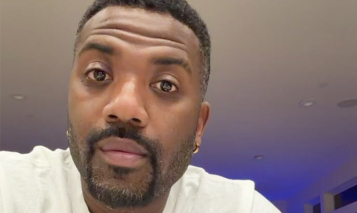
When we hear the words “sleep apnea” we tend to think it’s just a sleep disorder that causes snoring. But sleep apnea is a dangerous condition that can lead to heart attacks and death.
A few bold name celebrities have died recently from complications of sleep apnea. Sleep apnea contributed to Star Wars icon Carrie Fisher‘s death. And sleep apnea may have increased the risk of Joan Rivers‘ laryngospasm (throat tightness) when she underwent a endoscopy as an outpatient and died in 2014.
What is Sleep Apnea?
Sleep apnea occurs when people stop breathing repeatedly during their sleep, sometimes hundreds of times a night. Interruptions in respirations can last from a few seconds to a few minutes.
Multiple breathing pauses means the brain, the heart and other vital organs are not getting enough oxygen.
Untreated sleep apnea can cause serious damage to your heart. Sleep apnea has been linked to cardiac disease, hypertension, COPD, diabetes, depression, stroke and other chronic disorders.

How do you know if you have sleep apnea?
Your partner may be the first to inform you of snoring or breathing pauses.
If you wake up during the night coughing or making loud snorting noises or your heart is racing, that’s because your reflexes startled you awake.
Your heart accelerates and you feel like you were running a marathon while you were asleep.
Prolonged sleep apnea causes the walls of your heart to thicken (from working so hard) which can lead to heart arrhythmias (irregular heart rates), stroke and heart failure.
Obesity is a risk for Obstructive sleep apnea which occurs when the airway is obstructed during sleep.
Why don’t more doctors diagnose sleep apnea?
Because sleep apnea is diagnosed by sleep specialists during Sleep Studies — and most general practitioners don’t refer their patients for Sleep Studies — even when the patient reports signs of sleep apnea.
This is why it is important to be your own patient advocate.
Signs & Symptoms of Sleep Apnea
If you have any of these symptoms together or separately, notify your doctor or healthcare practitioner immediately.
Treatment of Sleep Apnea
CPAP or continuous positive airway pressure: The patient wears a mask over the nose that connects to a machine that gently pushes air through the mask to keep the airway open during sleep.
Lose weight: doctors encourage obese patients to lose weight to decrease the risk of obstructive sleep apnea.
This has been your Medical Minute
More Info On the Web
Sleep Apnea — Cleveland Clinic
What is Sleep Apnea? — NIH
What is Sleep Apnea? — WebMD
Sleep Apnea — Sleepapnea.org
Photos by Justin Horrocks/Getty Images, FatCamera/Getty Images




